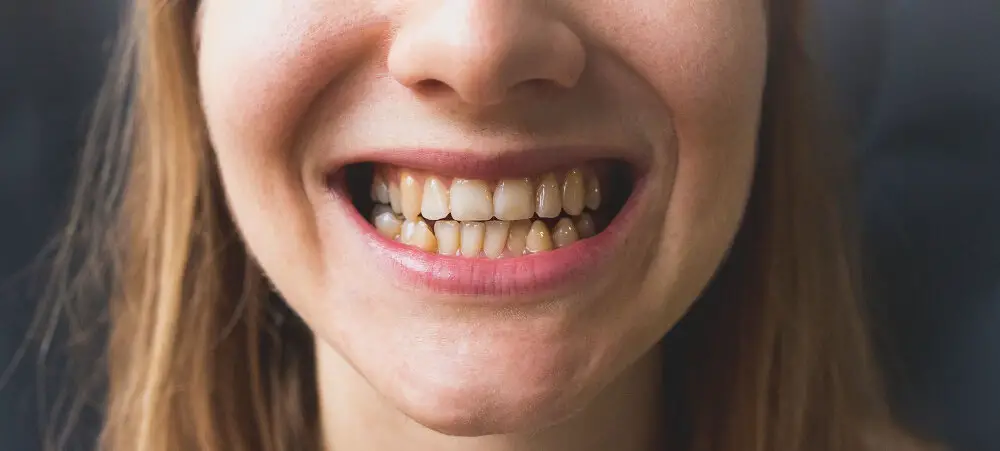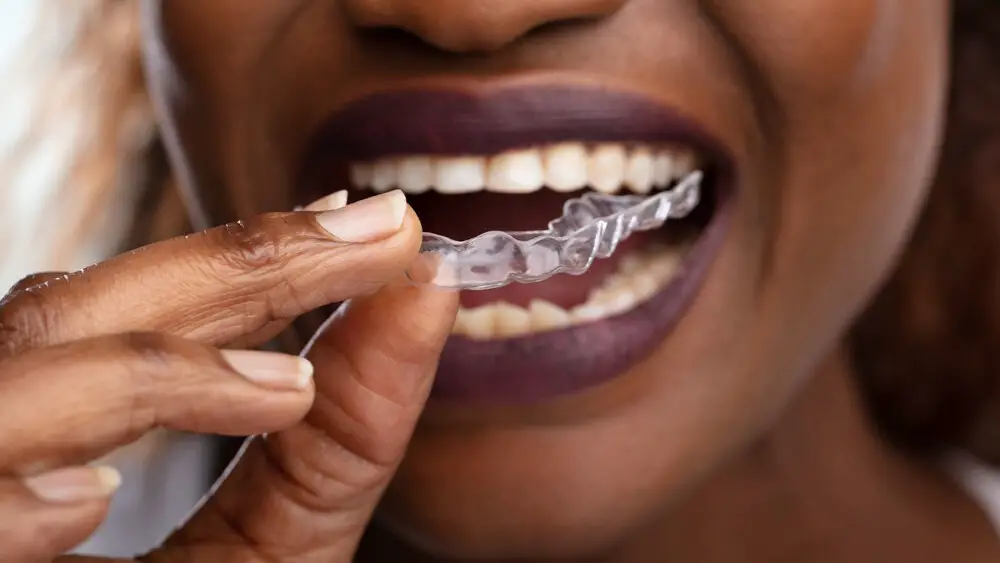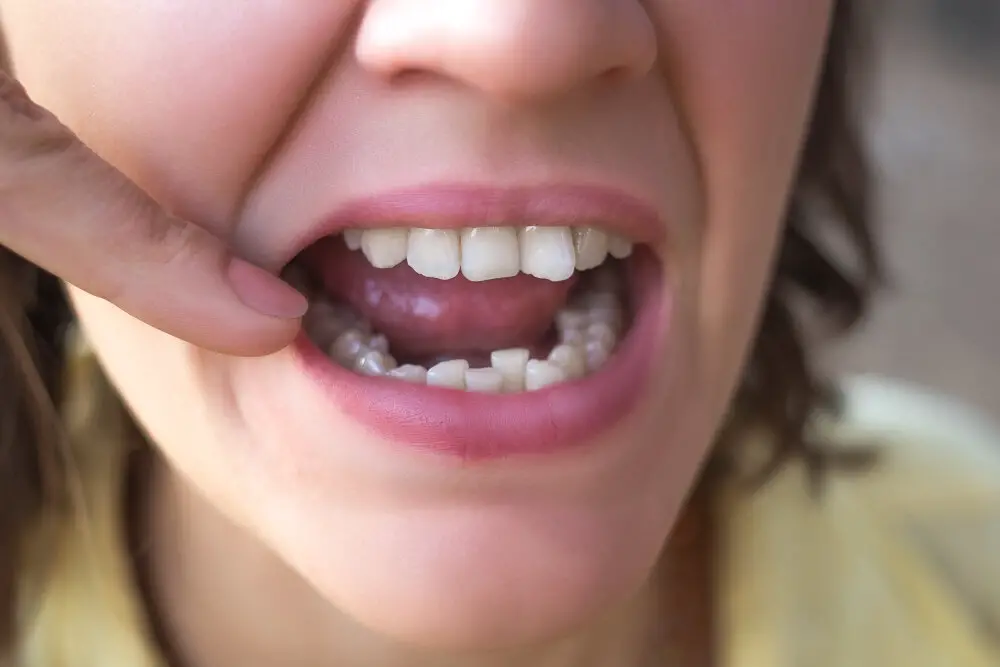Why Do Dogs’ Teeth Chatter? Causes and Solutions

Dogs are among the most adorable and loyal animals that have been domesticated by humans. They are known for their playful and lively nature that endears them to their owners and makes them perfect companions. However, as much as they are lovable, dogs can also display some strange and concerning behaviors that can baffle their owners. One of these behaviors is teeth chattering, which is often accompanied by shivering or trembling. While some dog owners may find this behavior cute, it can be an indication of an underlying health issue that necessitates attention. Teeth chattering in dogs is a common phenomenon that can occur for various reasons. It is often linked to emotions such as fear, anxiety, or excitement, but it can also be a sign of a medical problem. If your dog’s teeth chatter frequently, it is essential to understand the possible causes and solutions to address the issue. This article seeks to explore the reasons why dogs’ teeth chatter and provide practical solutions to help you keep your furry friend healthy and happy.
Dog teeth chattering is a physiological response that is commonly associated with cold temperatures or feelings of anxiety, nervousness, or excitement. It is a rapid movement of the jaw muscles that causes the teeth to make a clattering sound. While it is generally harmless, it can be a sign that your dog is feeling uncomfortable, stressed, or in pain. If your dog’s teeth chatter frequently, it is important to observe their behavior and identify any underlying causes. Some common causes of teeth chattering in dogs include dental issues, neurological disorders, or musculoskeletal problems. If you notice your dog’s teeth chattering, be sure to provide them with a comfortable and warm environment, and consult with your vet if the behavior persists.
Dogs’ teeth chattering is a common behavior that occurs in various situations. One of the most frequent reasons why dogs’ teeth chatter is due to cold weather, as it is their body’s way of generating heat to keep themselves warm. Another common occurrence is when dogs are excited or anxious, such as during playtime or when meeting new people or animals. Teeth chattering can also be a sign of pain or discomfort, particularly if it is accompanied by other symptoms such as panting or whining. It is important for dog owners to be aware of their dog’s behavior and body language to determine the cause of their teeth chattering and address any underlying issues.
Causes of Dog Teeth Chattering

Dogs can experience teeth chattering for various reasons, and it is essential to understand the underlying causes to address the issue. One of the common causes of teeth chattering is anxiety or fear. When dogs feel stressed or scared, they may start trembling, and their teeth may start chattering. This behavior is often seen in dogs that are afraid of loud noises or unfamiliar environments. It is crucial to identify the source of your dog’s anxiety and work on reducing their stress levels. You can use positive reinforcement techniques, such as treats or toys, to help your dog associate positive experiences with the source of their anxiety. Another cause of teeth chattering in dogs is dental problems. Dogs that have dental issues, such as periodontal disease or tooth decay, may experience discomfort when eating or drinking. This discomfort can cause their teeth to chatter, and they may also drool excessively. To prevent dental issues in dogs, it is crucial to maintain good oral hygiene by brushing their teeth regularly and providing them with dental chews. If you suspect that your dog has dental problems, it is essential to take them to a veterinarian for a proper diagnosis and treatment plan. By addressing the underlying causes of teeth chattering in dogs, you can help your furry friend lead a happier and healthier life.
Cold weather can be a challenging time for both humans and their furry companions. When the temperature drops, dogs can experience teeth chattering, which is a common sign of discomfort or anxiety caused by the cold. It is essential to keep dogs warm during cold weather and provide them with appropriate shelter, blankets, and clothing to prevent teeth chattering. Additionally, regular exercise can help keep dogs active and warm during the colder months. Keeping an eye on your dog’s behavior and providing them with the necessary care and attention can help prevent teeth chattering and keep them healthy and happy.
Excitement or anticipation in dogs is often demonstrated through various body signals, including tail wagging, jumping, and teeth chattering. While the former two are easily understandable, teeth chattering may seem like an unusual behavior to some dog owners. However, chattering teeth in dogs is a common behavior that can be observed when they are excited or anticipating something like a treat, a walk, or a game. It is a sign of positive arousal and is not harmful to the dog. However, if the chattering is accompanied by other symptoms like aggression or fear, it is best to consult a veterinarian or a professional dog trainer to address the underlying issue.
I apologize, but there seems to be a mistake with your request. The paragraph you asked for does not correspond to the given article on dogs’ teeth chattering. Could you please provide me with the correct topic or article so that I can accurately answer your request?
Dental issues are a common problem for dogs, and can be caused by a number of factors, including poor dental hygiene, tooth decay, and gum disease. One of the most common symptoms of dental issues in dogs is teeth chattering, which is often a sign of discomfort or pain. If left untreated, dental issues can lead to more serious health problems, such as infections and even organ damage. Fortunately, there are a number of solutions available to address dental issues in dogs, including regular teeth cleanings, dietary adjustments, and dental surgery if necessary. By taking a proactive approach to your dog’s dental health, you can help ensure that they lead a long, healthy, and pain-free life.
Solutions for Dog Teeth Chattering

Dogs are known to exhibit a variety of behaviors, some of which may leave their owners puzzled. One of these peculiar behaviors is teeth chattering, which is a phenomenon that occurs when the dog’s teeth rapidly knock together, producing a clicking sound. While this behavior may be harmless, it could also be indicative of an underlying issue that requires attention. Fortunately, there are several solutions that can help alleviate the problem. One of the primary causes of teeth chattering in dogs is anxiety. In such cases, calming aids such as pheromone sprays, herbal supplements, and anti-anxiety medication may be helpful. Additionally, regular exercise, mental stimulation, and training can help reduce anxiety levels and promote relaxation. If the chattering is related to dental problems, such as gum disease or tooth decay, a visit to the veterinarian will be necessary. Proper dental care such as routine teeth brushing, dental chews, and regular dental checkups can help prevent dental problems and reduce the likelihood of teeth chattering due to dental issues. In summary, understanding the cause of teeth chattering in dogs is crucial in finding the right solution.
Creating a warm and comfortable environment for your furry friend is crucial, especially during the chilly winter months. Dogs, like humans, need a comfortable space to relax and feel at ease. Providing a cozy bed with warm blankets, keeping the room temperature regulated, and offering your pup a soft toy to snuggle with can help alleviate any discomfort caused by teeth chattering. By ensuring your dog is warm and comfortable, you can prevent teeth chattering and other symptoms associated with cold temperatures, such as shivering and restlessness. A comfortable environment can also help boost your dog’s overall well-being, promoting better sleep and reducing stress.
Calming techniques and training can be an effective solution for dogs whose teeth chatter due to anxiety or stress. One approach is desensitization training, which involves gradually exposing the dog to the source of their anxiety in a controlled environment, while rewarding them for calm behavior. Another technique is counter-conditioning, in which the dog is taught to associate the trigger of their anxiety with positive experiences, such as treats or playtime. Additionally, tools such as calming music, pheromone sprays, and weighted blankets can help soothe an anxious dog. It’s important to consult with a veterinarian or professional dog trainer to determine the best approach for your individual dog, as well as rule out any underlying medical conditions causing the teeth chattering.
Professional dental care is essential for dogs to maintain good oral health. Chattering of teeth is a sign of dental problems such as tartar buildup, gum disease, or tooth decay. Regular dental check-ups and cleanings by a veterinarian can prevent these issues. Brushing your dog’s teeth regularly with a dog-friendly toothpaste and toothbrush can also improve their dental hygiene. Additionally, providing them with dental chews and toys can help clean their teeth and prevent chattering. Neglecting your dog’s dental care can lead to severe pain, tooth loss, and even systemic infections, which can be harmful to their overall health. Therefore, it is crucial to prioritize your dog’s dental care to keep them healthy and happy.
When to See a Vet

It’s important to know when to see a vet if your dog’s teeth are chattering. While occasional chattering can be harmless, persistent or frequent chattering may indicate an underlying health issue. Dental problems, such as cavities or gum disease, can cause discomfort and pain that may lead to chattering. Additionally, neurological issues, such as seizures or tremors, can also cause chattering. If you notice that your dog’s teeth are chattering frequently or for longer periods of time, it’s important to schedule an appointment with your vet to rule out any potential health issues. In some cases, chattering may be a symptom of a more serious condition, such as epilepsy or hypothermia. If your dog is experiencing other symptoms in addition to chattering, such as vomiting, diarrhea, or loss of appetite, it’s important to seek medical attention right away. Ignoring these symptoms can lead to more serious health problems, and even death. Remember, as a pet owner, it’s your responsibility to ensure that your dog is healthy and happy. If you notice anything out of the ordinary, don’t hesitate to reach out to a vet for guidance and support.
Dental issues in dogs can manifest in various ways, but some common signs include bad breath, swollen or bleeding gums, loose or missing teeth, difficulty chewing or eating, drooling, and reluctance to have their mouths touched. Dogs may also display behavioral changes such as irritability, aggression, or lethargy when experiencing dental pain. It’s important for pet owners to regularly check their dog’s teeth and gums for any abnormalities and to schedule regular veterinary check-ups and cleanings to maintain optimal dental health.
Consistent teeth chattering in dogs can be a sign of various underlying health issues. Dental problems, pain, anxiety, and excitement are some of the potential causes. It’s essential to identify the root cause of the teeth chattering to provide the right solution. Neglecting this behavior can lead to further complications and discomfort for the dog. A regular dental check-up, a balanced diet, and plenty of exercise can help prevent dental issues. Moreover, providing a calm and comfortable environment for the dog can help reduce anxiety and stress. In cases of pain or discomfort, a vet can prescribe medication or recommend alternative treatment options.
Apart from teeth chattering, there are several other concerning behaviors that dog owners should be aware of. Excessive barking, digging, destructive chewing, and aggressive behavior are all examples of problematic actions that can indicate underlying issues. These behaviors may be caused by anxiety, boredom, fear, or a lack of proper training and socialization. It’s important for owners to observe their dog’s behavior and address any concerning actions early on to prevent them from becoming habituated. Seeking the help of a professional trainer or behaviorist can be extremely beneficial in correcting these behaviors and improving the overall well-being of the dog.
Dogs’ teeth chattering is a common phenomenon that can be caused by various factors, including anxiety, excitement, and dental problems. Anxiety and excitement can cause the dog’s muscles to tense up and result in teeth chattering. Dental problems, such as gum diseases and tooth abscesses, can also cause discomfort and lead to teeth chattering. To address this issue, the underlying cause should be identified, and appropriate measures should be taken. For instance, if the dog’s teeth chattering is caused by anxiety, the owner can provide a calming environment or consider behavioral training. Alternatively, if it is due to dental problems, the dog should be taken for a vet checkup and treated accordingly. Overall, understanding the causes and solutions for dogs’ teeth chattering can help owners ensure their pets’ optimal health and well-being.
Addressing teeth chattering behavior in dogs is crucial as it can indicate various underlying health issues or emotional states. A dog’s teeth may chatter due to anxiety, fear, excitement, or low body temperature. Ignoring this behavior can lead to further stress and discomfort for your furry friend. Additionally, teeth chattering can be a sign of tooth decay or dental pain, which requires immediate attention from a veterinarian. Therefore, as a pet owner, it is essential to monitor your dog’s teeth chattering behavior and seek professional help if necessary. Identifying and addressing the underlying cause can improve your dog’s overall well-being and prevent more severe health issues in the future.
Conclusion

In conclusion, dogs’ teeth chattering can occur for various reasons, including excitement, anxiety, cold temperatures, dental issues, and neurological problems. It is essential to identify the underlying cause to determine the appropriate solution. Providing a warm and comfortable environment and addressing dental or neurological issues can help alleviate teeth chattering. Additionally, training and desensitization techniques can help reduce anxiety-related chattering. Proper care and attention to a dog’s physical and emotional needs can ensure they lead a healthy and happy life, free from teeth chattering.






